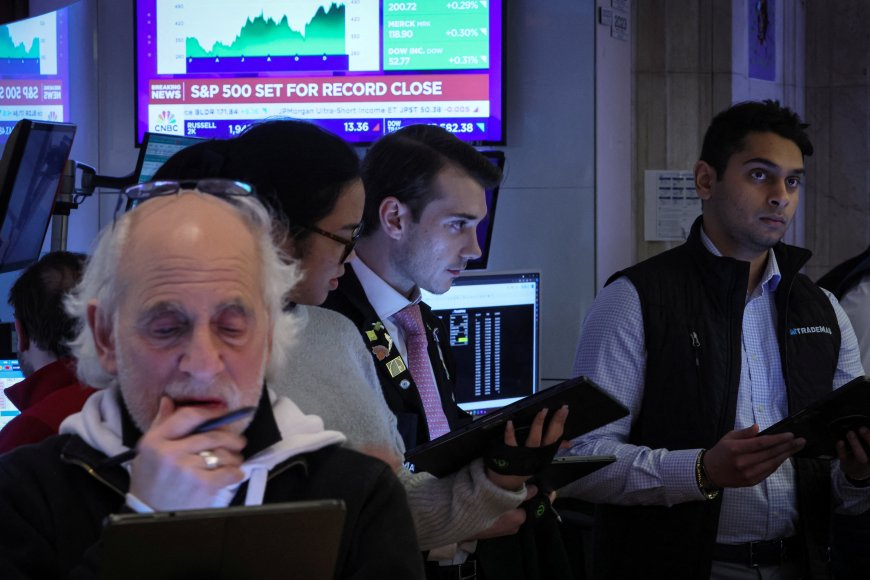Global Equity Markets Maintain Strength; BOJ Caution Impacts Yen
Global equity markets remain strong amid positive economic data and central bank policies. Stay updated with the latest market trends and developments.

On Thursday, global stock markets retained their upward trajectory, bolstered by recent supportive measures in China and assurances from the Bank of Japan (BOJ) regarding interest rates. This positive sentiment follows the latest record highs achieved by Wall Street.
In Europe, where stocks have surged nearly 15% since November, markets saw a solid morning with minor gains in major indices such as London, Frankfurt, Paris, and Milan. MSCI's primary 47-country world index remained close to a two-year peak.
Despite the fresh all-time high in a developed market-only version of the index, sluggish U.S. futures indicated a lack of momentum to build upon these gains.
Recent robust economic data from the United States prompted bond traders to revise their expectations for the pace of interest rate cuts by major central banks. Meanwhile, the yen's decline underscored the volatility in currency markets.
Commenting on market dynamics, Kit Juckes from Societe Generale noted, "We are primarily trading central banks," highlighting the market's preoccupation with central bank policies. He also emphasized the remarkable strength of U.S. economic data, particularly robust job growth figures.
As expectations for aggressive interest rate cuts wane, both the Federal Reserve and the European Central Bank, along with several major emerging markets, have pushed back against forecasts of significant rate cuts. They are closely monitoring whether the inflationary pressures observed two years ago have subsided.
The euro witnessed a slight decline against the dollar, while Germany's 10-year government bond yield saw a modest rise. U.S. Treasury yields also edged higher, signaling a cautious stance on interest rate cuts.
While the likelihood of a March rate cut by the Fed is almost discounted, futures markets still imply an 80% probability of a rate cut as early as May. However, the projected total easing for 2024 has been revised downwards.
On Wall Street, investors awaited further jobs market data and earnings reports, following the recent record highs set by the S&P 500 and Dow Jones Industrial Average.
In Europe, mixed corporate earnings results influenced market sentiment. While some companies, like Unilever, reported positive earnings and announced share buybacks, others, including Maersk and Astrazeneca, faced losses.
In Asia, Japan's Nikkei surged to its highest level in 34 years, supported by the BOJ's comments and positive earnings news from SoftBank. However, Hong Kong's Hang Seng index closed lower, with Alibaba's disappointing revenue contributing to the decline.
Meanwhile, mainland China's stock market rebounded ahead of the Lunar New Year holiday, amidst signs of government intervention to address market concerns.
In commodity markets, oil prices stabilized, gold remained flat, and bitcoin saw a slight increase. Copper prices also ticked up after reaching a three-week low.
Overall, global stock markets continue to exhibit resilience, driven by a combination of robust economic data, corporate earnings, and central bank policies.
Also Read: Asian Stock Markets Suffer as China Economy Falters; Eyes on Fed Meeting
































































